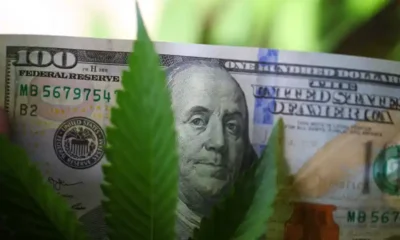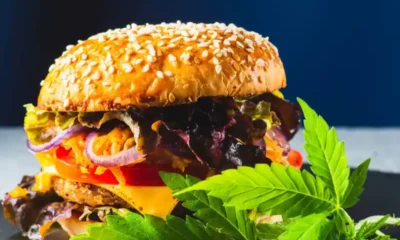Connect with us
Published
2 years agoon

Veterans are often brought up in conversations surrounding cannabis and psychedelic reform, as a population disproportionately affected by mental health conditions like post traumatic stress disorder who could greatly benefit from continuously emerging plant medicine industries.
However, an internal government audit has raised a number of red flags among mental health providers and leaders regarding Ottawa, Canada’s administration of hundreds of millions of dollars in medical cannabis for veterans, according to the Toronto Star.
The Canadian Press first reported on the results of the audit last week, finding that Veterans Affairs has lost control as requests for medical cannabis reimbursements from injured veterans increased significantly.
A bit of background here: The Canadian government started covering the costs of veterans’ cannabis in 2008. In the last fiscal year, the government reimbursed more than 18,000 veterans for their prescriptions, showing a 3,000 increase from the previous year and more than twice as many reimbursements as 2017-2018.
Costs have also been increasing as reimbursement requests gow. Ottawa paid out $153 million last year, which was three times what it paid out in 2017-2018. It estimates it will pay out $200 million this year and $300 million in 2025-2026.
The audit results have prompted calls for further research into the potential benefits and risks of medical cannabis, along with greater oversight of how cannabis is used and administered to protect at-risk veterans and taxpayer money.
Olivia Thorne, executive director of the B.C.-based Veterans Transition Network, said it’s clear from this report that today’s medical cannabis landscape for vets is “not the best that it can be, not anywhere near it.”
Thorne added, “We don’t want the Wild West. And to some degree, this report seems to indicate that that’s currently the state of affairs.”
Examining the increase in reimbursements and the growing costs on behalf of the government, auditors identified a number of gaps and shortcomings in Veteran Affairs’ management of the program.
In addition to the exponentially shifting trends, only a handful of medical practitioners were found to have written 40% of all authorizations for veterans. One-third of forms submitted to Veterans Affairs and reviewed by auditors were also found to be missing key information, though they were still approved. The department’s requirements and direction for eligibility were similarly found to be lacking.
Jason Busse, associate director of the Michael G. DeGroote Centre for Medicinal Cannabis Research at McMaster University, is one of the few researchers in Canada looking into cannabis use by veterans. He described the audit’s findings as “shocking,” adding that they validated his “worst fears.”
“To see some of these projections, to see some of the limits of the current information, with some of these stark numbers, was extremely surprising,” Busse said. He’s previously called for more research into the potential medical benefits and risks of veterans’ cannabis use and said it’s troubling that the government has failed to track and monitor its own data around authorizations and usage.
While Busse is not alone in his alarmed response, he cautioned Veterans Affairs against over correcting, as that might make medical cannabis access for veterans more difficult or impossible. Rather, he said there is a need for better oversight and additional research to help Ottawa set proper checks and balances for the program.
Busse also noted that the audit was limited, in that it doesn’t look at how medical cannabis fits into veterans’ overall treatment, which might include other medications and different forms of counseling and therapy.
Regardless, Thorne said that the trend of veterans requesting more cannabis, not less, each year is a bad sign, since treatment should help vets to address and resolve their trauma over time.
“That then raises the question of, how effective is this for whatever they may be seeking it for?” he said. “To me, it does not look like a very viable long-term strategy if they are requiring more and more over time.”
In response to the audit, Veterans Affairs officials signaled they are looking at a number of changes surrounding which conditions are eligible for cannabis prescriptions, along with limits on daily authorized amounts and for specific products. The department is also looking into a new, more detailed authorization form with more safeguards for patients requesting more than three grams of flower a day, though it’s not clear when those changes will take effect.


You Don’t Understand the Difference Between Decriminalizing and Legalizing, Do You?


North Dakota Committee Files Ballot Measure To Legalize Adult-Use Cannabis


California County Mulls Reduction To Cannabis Cultivation Tax


Cheech and Chong Become Newest Operators in Call of Duty


Manage Your Munchies: This Year’s Top 420 Meal Deals


New York Cannabis Control Board Approves 101 New Adult-Use Licenses
